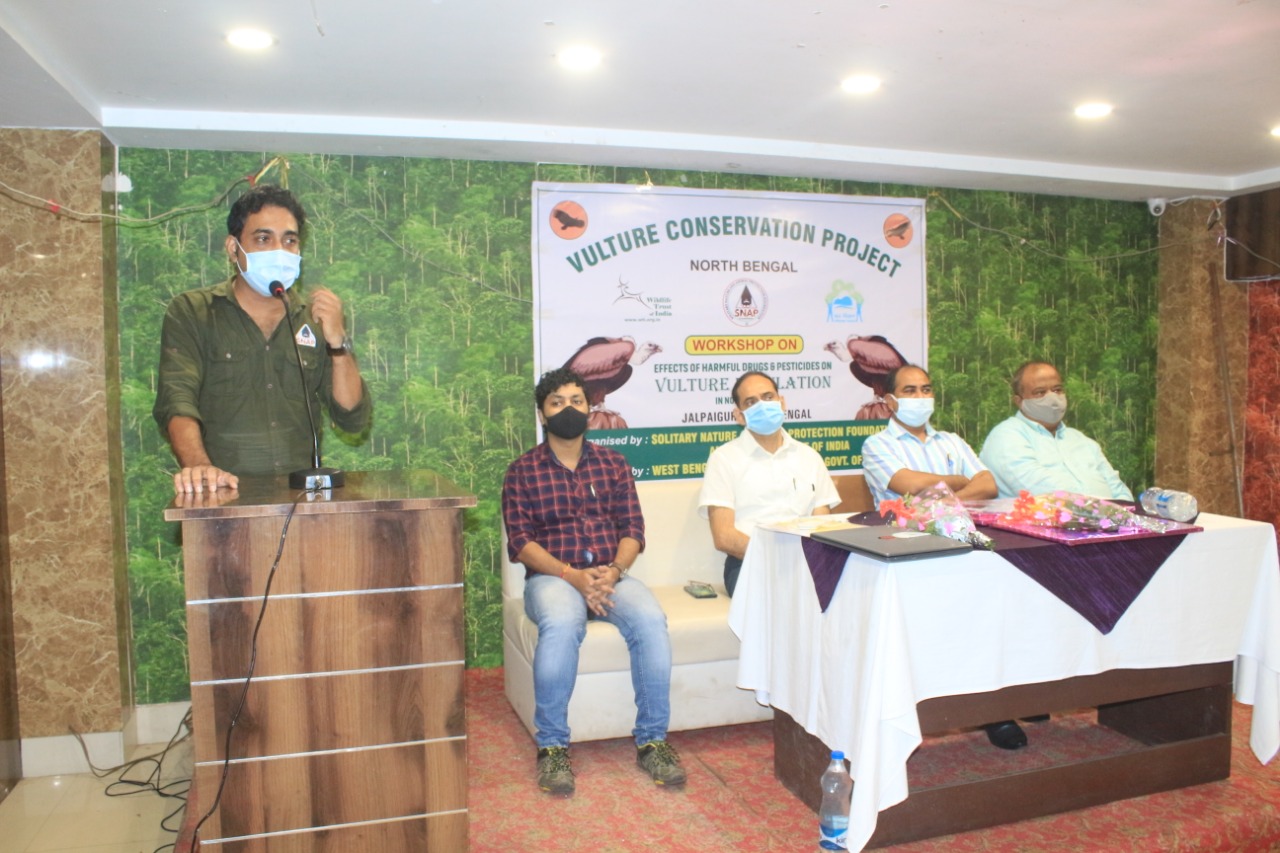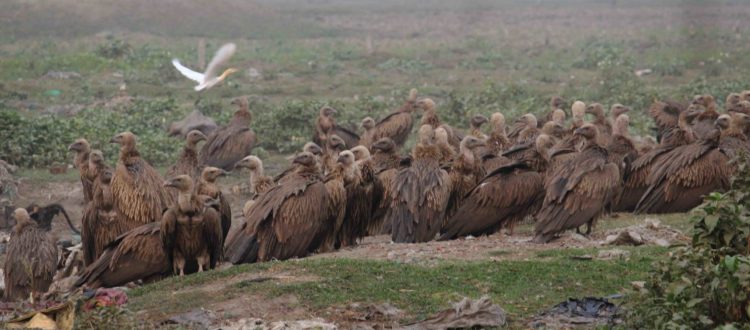Pesticide Dealers Pledge to Protect Vultures
25th August, 2021, Siliguri: The largest of Asian Gyps vultures, the Himalayan Griffons, have long been threatened by the use of certain drugs in cattle treatment and pesticides in agriculture farming. In most of India’s countryside, deliberate poisoning of cattle carcasses too has been the reason for a substantial drop in their numbers leading to near decimation of the species since the 1990’s. Consequently, the Himalayan Griffon is currently listed as “Near Threatened” in the IUCN Red List of Threatened Species. Here is an example of how effective conversations with target groups created sensitized stakeholders who took immediate conservation action to protect vultures from poisoning.

Vulture deaths in Siliguri
Following the death of 13 such Himalayan Griffon vultures in April 2021 at a spot in Ambari-Falakata area in North Bengal, SNAP (Solitary Nature and Animal Protection) Foundation investigated the matter and found 21 similar cases of deaths between 2017 and 2019. Further surveys pointed towards the use of Diclofenac, Flunixin, Ketoprofen, Aceclofenac, and Carbamates in cattle farming and agricultural practices by people. The use of some of these drugs is already banned in India. Supported by Wildlife Trust of India, Koustav Choudhary of SNAP Foundation has since then extensively investigated the use of diclofenac and other drugs in the area by mobilizing a team of informers in 26 villages. Simultaneous workshops have also been conducted for farmers while also looping in the local forest department.

First steps towards vulture protection
On 18th of August, 62 participants came together to discuss the way forward for vulture protection in the landscape. The workshop had representatives from the Pesticides Dealers Association, Bengal Chemist and Druggists Association, Confederation of Small Tea Growers Association and Jalpaiguri Small Tea Growers Association, along with officials from the forest department.
Among other key outcomes, the Pesticide Dealer’s Association and Jalpaiguri Drugs Association pledged to stop selling these drugs while supporting the push for a complete ban on their use. A WhatsApp group was created as of immediate effect with all stakeholders in it, to report vulture sightings and any information gathered on the sale of these harmful drugs in the area. Members of the Pesticide Dealers Association, Jalpaiguri Drugs Association participants and Small Tea Growers Association have invited Koustav and team to be a part of all their conferences planned in future to conduct a session specifically on vultures. A meeting is in the offing with the Siliguri Municipal Corporation to discuss an ideal site for vulture restaurants for the dumping of carcasses.

The members of the Jalpaiguri Drugs Association and Pesticide Dealer’s Association also took a pledge to stop the sale of these harmful drugs while also volunteering their support towards its complete ban. “It was encouraging to see these key stakeholders come together for the protection of vultures,” says Koustav Choudhary. “Without the active support of the people who were directly involved in the distribution and use of the drugs in question, protection of these vultures would be impossible. Now that all of us have a better understanding towards the importance of the bird, we certainly can hope for a better future”, he adds.
Other key invitees to the workshop included Mr. Rajendra Jakher (CCF Wildlife North Bengal), Mr. Hari Krishnan (DFO Baikunthopur), Mr. Soumya Chakraborty (In Charge Vulture Conservation Center- Buxa Tiger Reserve) and Mr. Manash Bandhu Mazumder (President TEESTA). SNAP foundation would continue to work towards raising public awareness while pushing for stringent law against the use of the harmful pesticides.
Rapid Action Projects such as this one funded by Stop Poaching Fund provide urgent critical support to local individuals and organizations to nip wildlife emergencies in the bud. A series of effective outcomes through a consistent approach contribute to a larger conservation impact. If you know of a deserving individual or organization that needs support to effect conservation action on ground, get in touch with us through rap@wti.org.in









